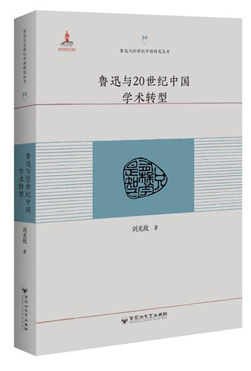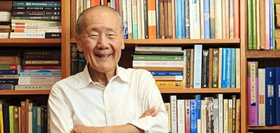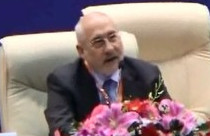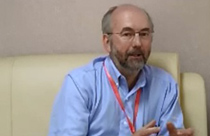Exploring Lu Xun’s identity as a scholar
Author : PAN JIANWEI Source : Chinese Social Sciences Today 2019-12-17

Lu Xun and Chinese Academic Transformation in the 20th Century
For a long time, Lu Xun (1881–1936) was known as a writer and a thinker. With increased research, people have gradually realized that these labels do not fully cover his achievements. In Lu Xun and Chinese Academic Transformation in the 20th Century, Liu Kedi, a professor from the Humanities College of Hangzhou Normal University, attempts to make readers realize that it is difficult to really understand Lu as a writer without studying him as a scholar.
Although Lu’s academic achievements were much less extensive than his literary achievements, his academic research started much earlier than his creation of “new literature,” which includes both the modern and contemporary literature in China since the May 4th Movement in 1919. The time he spent on academic research was no less than that of his research on literature. After the late Qing Dynasty (1644–1911) and the early Republic of China, he proofread and edited ancient books, wrote papers, and translated and introduced Western works and theories; after the 1920s, he studied the history of novels and literature while maintaining his other work; in the 1930s, he completed the edited edition of Collection of Ji Kang. The period of his academic research lasted as long as 30 years.
Lu’s academic research and literary creation complement and influence each other. The author quotes from Georges Poulet’s comment from La Conscience Critique that Lu’s fiction is profound because he has more theoretical literacy and a broader perspective, which helps him shape literary images from a theoretical perspective. In turn, Lu’s argumentation, often changing from serious to humorous and from rigorous to free style, was the result of his grasp of historical truth and the meaning of life with the heart of a writer.
Liu adopts the method of comparative analysis in the book, and compares Lu with other scholars in different times. For example, Liu points out that Lu’s view that “the Wei and Jin dynasties (220–420) mark the conscious age of literature in China” is likely to be inspired by Suzuki Torao (1878–1963). Then Liu accumulates the views of contemporary scholars such as Zhao Minli, Zhan Furui and Li Binghai on the same topic, and believes that their arguments are all reasonable. But from the perspective of the aesthetic nature of literature, he deduces that Lu’s views are the most scientific.
For another example, Lu satirized typical happy endings of Chinese operas and novels and raised relevant criticism to a height of national character. The author also cites the views of Tschen Yin Koh (1890–1969), who argued that this tradition is influenced by the theory of karmic retribution in Buddhism, which evolved into “virtue to be rewarded and vice punished.” Lu’s critiques are from a perspective of ideological enlightenment, while Tschen’s views are from a perspective of cultural exchange. The combination of the two viewpoints provides a more comprehensive understanding of the cultural psychology of “the great reunion.”
(Edited by YANG LANLAN)
Interview with Wang Gungwu on significance of studying overseas Chinese
Wang Gungwu is a distinguished Australian historian who studies overseas Chinese. He currently works at the Faculty o...
-
On the rat/mouse of the zodiac
2020-02-20
-
Regional development calls for Huaihe culture’s soft power
2020-01-10
-
Archaeological discoveries unveil Maritime Silk Road
2020-01-06
-
China’s industrial art printing
2019-12-10
-
Yue-Gan Ancient Road: A journey into Hakka history
2019-05-13
-
The Lantern Festival in Dream of the Red Chamber
2019-02-18














 2011-2013 by www.cssn.cn. All Rights Reserved
2011-2013 by www.cssn.cn. All Rights Reserved